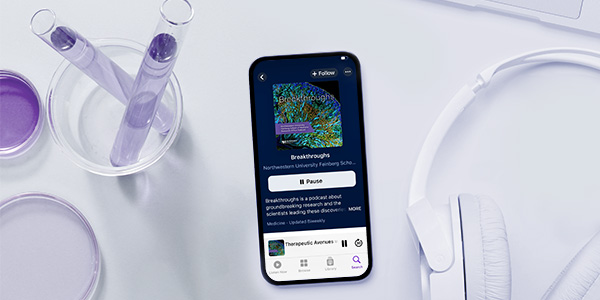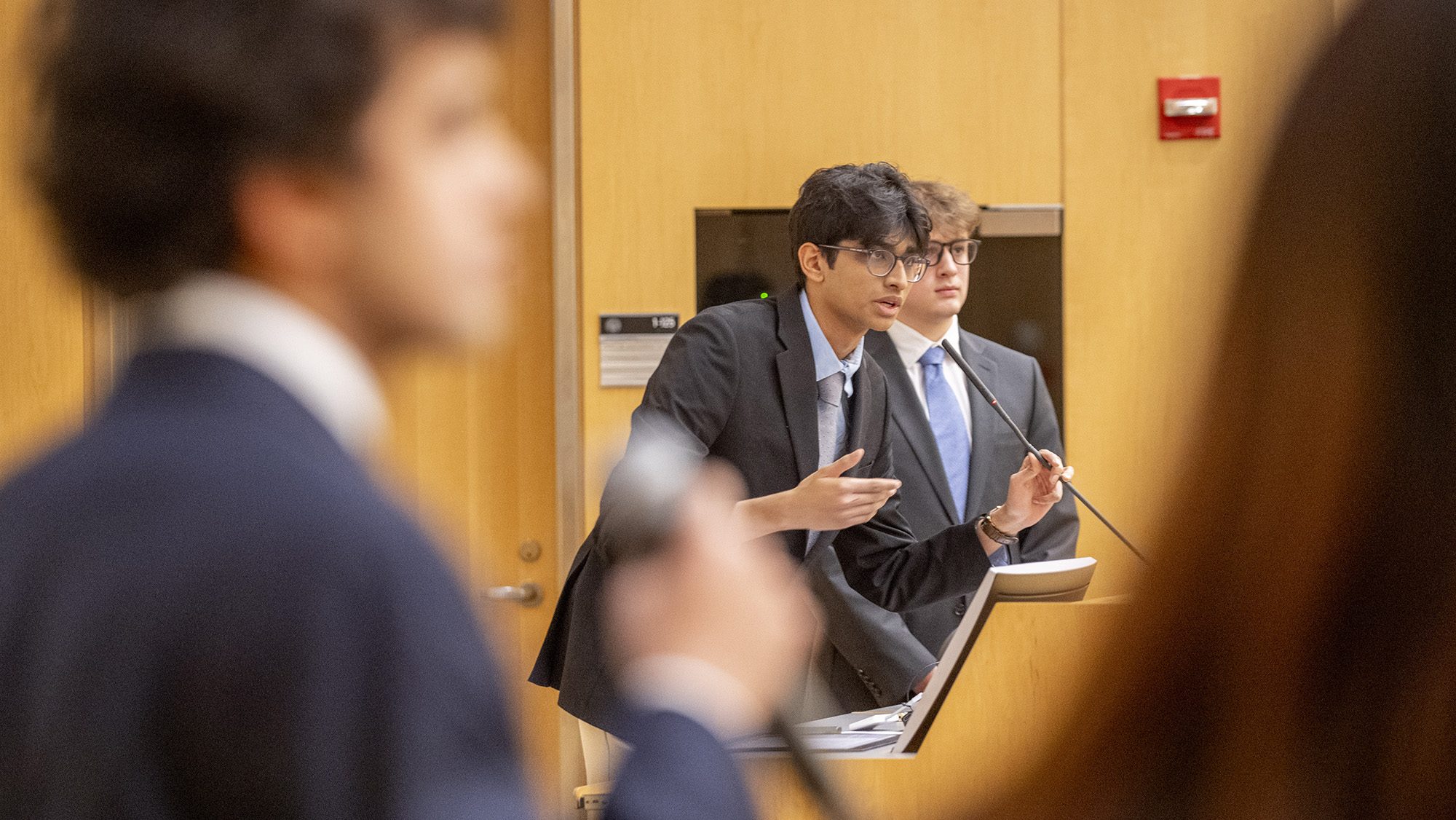Media Coverage
The work done by Northwestern University Feinberg School of Medicine faculty members (and even some students) is regularly highlighted in newspapers, online media outlets and more. Below you’ll find links to articles and videos of Feinberg in the news.
-
Chicago Crain’s Business
–
Researchers detail dramatic spike in spending for kids’ behavioral health care
Pediatric behavioral health out-of-pocket spending increased 6.4% annually, compared with 2.7% annually for non-behavioral health medical spending, over the time period studied, “leaving many families struggling with significant financial burden,” researchers said in a news release.
“We were surprised by the magnitude of spending for children’s behavioral health, and especially the dramatically rising out-of-pocket costs for families,” senior author Dr. Kenneth Michelson, emergency medicine physician at Lurie Children’s and an associate professor of pediatrics at Feinberg, said in the release. “Our findings provide a striking perspective on the youth behavioral health crisis.”
-
New York Times
–
My Face Gets Flushed and Red. Why Is It Worsening as I Age?
Aside from the typical symptoms — including persistent redness, dilated blood vessels and bumps — it may also cause skin dryness, tightness and burning. Rosacea can cause a feeling of grittiness or itchiness in the eyes, and it can thicken the skin on the nose, too, said Dr. Dina Elrashidy, a dermatologist at Northwestern Medicine in Chicago.
Symptoms usually “wax and wane” throughout life, as you encounter triggers, Dr. Elrashidy said.
-
USA Today
–
Tanning beds should have warnings like cigarette packages, experts say. Here’s why.
The new research looked at thousands of medical records to compare melanoma rates in people who used tanning beds and those who did not, and found nearly a threefold increase in the risk of melanoma among tanning bed users.
“When you buy a pack of cigarettes, it says this may result in lung cancer, Dr. Pedram Gerami, professor of skin cancer research at Northwestern University Feinberg School of Medicine and lead author of the study, said in a statement announcing the results. “We should have a similar campaign with tanning bed usage. The World Health Organization has deemed tanning beds to be the same level of carcinogen as smoking and asbestos. It’s a class one carcinogen.”
-
CBS Chicago
–
Northwestern Medicine study finds tanning bed use triples risk of melanoma
A study conducted in part by Chicago’s Northwestern Medicine found that tanning beds not only triple the risk of melanoma, but can also damage DNA across nearly the whole skin surface.
Northwestern Medicine and the University of California, San Francisco launched the study after researchers noticed an unusually high number of women under 50 who had skin cancer more than one time.
Dr. Pedram Gerami, professor of skin cancer research at Northwestern University Feinberg School of Medicine, and his research team compared roughly 3,000 tanning bed users with a control group of 3,000 age-matched people who did not have a history of indoor tanning.
-
NPR
–
Tanning bed users are at higher risk of skin cancer, especially in unusual places
Researchers found that tanning bed users were nearly three times as likely to develop melanoma — the deadliest form of skin cancer — compared to people who’d never tanned indoors. They also had DNA damage that can lead to melanoma across nearly the entire surface of the skin.
“Even in skin cells that look normal, in tanning bed patients, you can find those precursor mutations” that lead to melanoma, says Dr. Pedram Gerami, one of the study’s authors and the IDP Foundation professor of skin cancer research at Northwestern University.
-
Chicago Tribune
–
Tanning bed users have nearly twice as much damage to skin cells, Northwestern study finds
Not only is the use of tanning beds associated with nearly triple the risk of developing melanoma, but heavy users of tanning beds also had more damage to the DNA of their skin cells, according to the study published Friday in the peer-reviewed journal Science Advances.
Dr. Pedram Gerami, a professor of skin cancer research at Northwestern University Feinberg School of Medicine, decided to look into the issue of tanning beds and melanoma after noticing that an unusually large number of his patients were women younger than 50 who had melanoma multiple times.
-
Fox News
–
Tanning beds could triple melanoma risk, new study finds
A recent study out of Northwestern University found evidence that using tanning beds can increase a person’s risk of developing skin cancer. The research is the first of its kind and found that using tanned beds increased the risk of melanoma threefold, according to a university news release.
What they’re saying: “Even in normal skin from indoor tanning patients, areas where there are no moles, we found DNA changes that are precursor mutations that predispose to melanoma,” said study first author Dr. Pedram Gerami, professor of skin cancer research at Northwestern University Feinberg School of Medicine. “That has never been shown before.”
-
Fox Chicago
–
Shingles vaccine could help slow dementia according to study
A new study suggests the shingles vaccine could slow the progression of dementia. Dr. Aarati Didwania with Northwestern Medicine joins via Zoom to share more about this study and the importance of the shingles vaccine.
-
New York Times
–
What Menopause Does to the Body
You know menopause can cause hot flashes. But did you know it can also lead to a dry mouth, heart palpitations or recurring urinary tract infections?
Though only a handful of them get much attention, there are more than two dozen known symptoms of menopause and perimenopause, the time leading up to and immediately following your last period.
Dr. Lauren Streicher, a clinical professor of obstetrics and gynecology at Northwestern University Feinberg School of Medicine, contributed to the story.
-
Crain’s Chicago Business
–
Philanthropists give $11 million for Lurie Children’s rare genetic disease program
Chicago philanthropists Don and Anne Edwards have donated $11 million to Ann & Robert H. Lurie Children’s Hospital to establish what will be the largest pediatric genetics training program in Illinois and triple the hospital’s rare disease clinical trials.
Dr. Carlos Prada will head the Edwards Family Division. Prada, who joined the hospital in 2021, is also medical director of Lurie’s Cellular & Gene Therapy Program and a professor of pediatrics at Northwestern University Feinberg School of Medicine.






